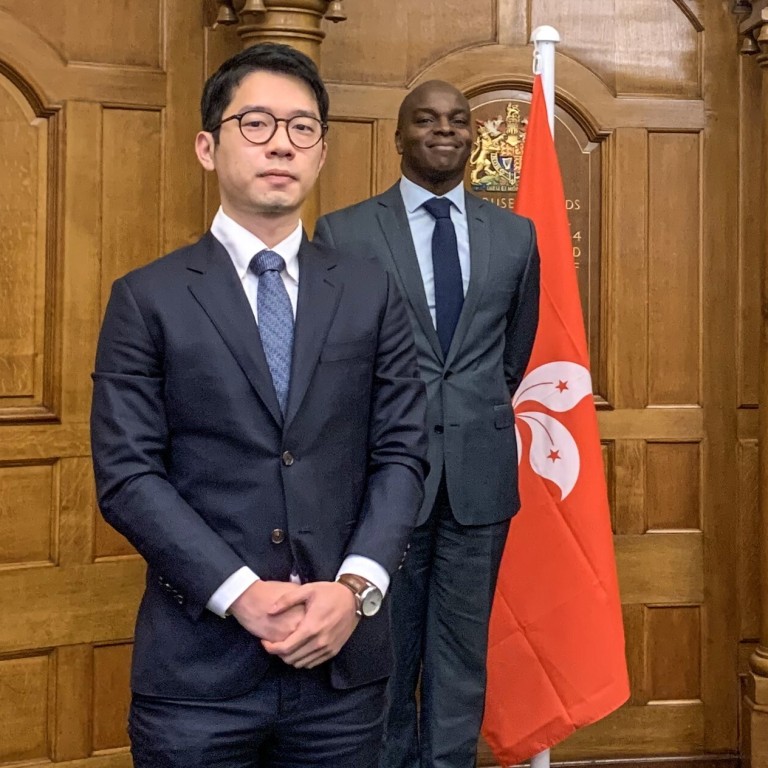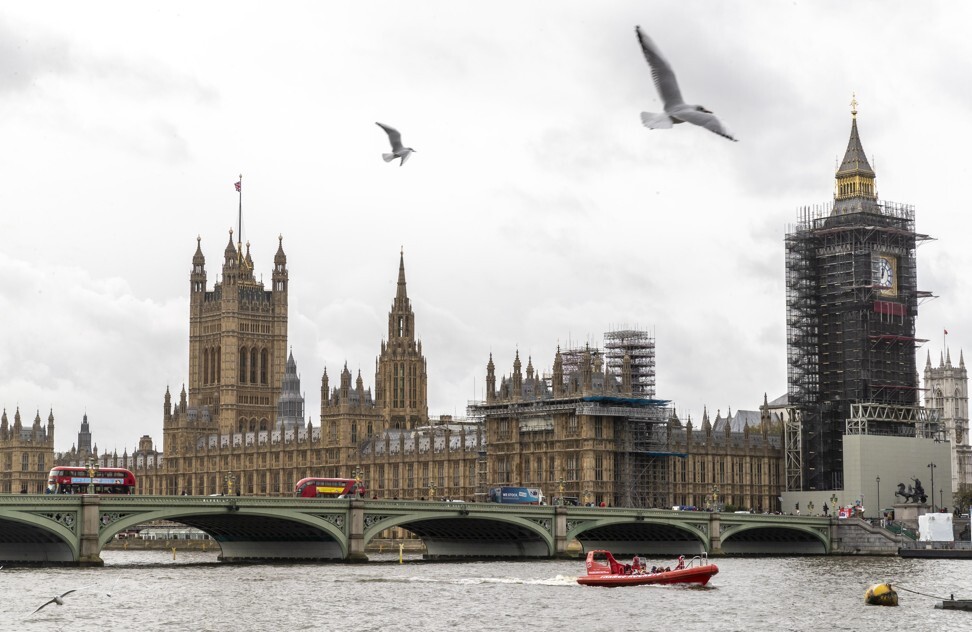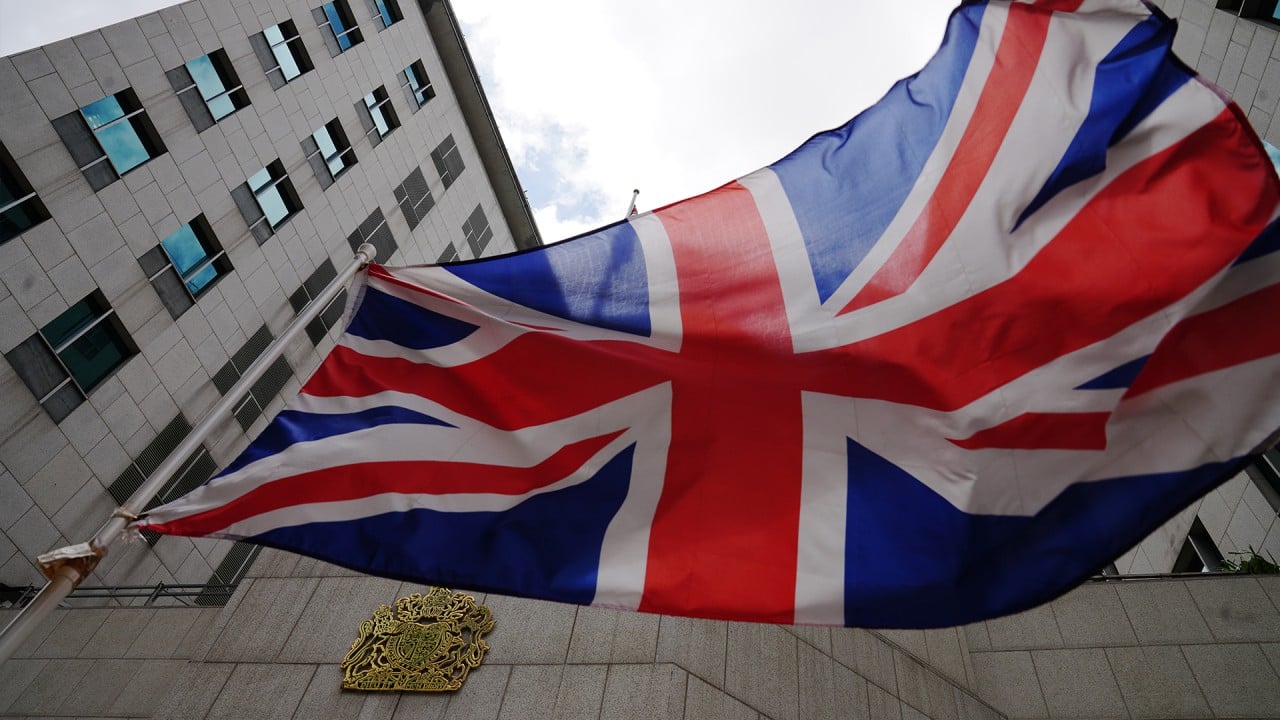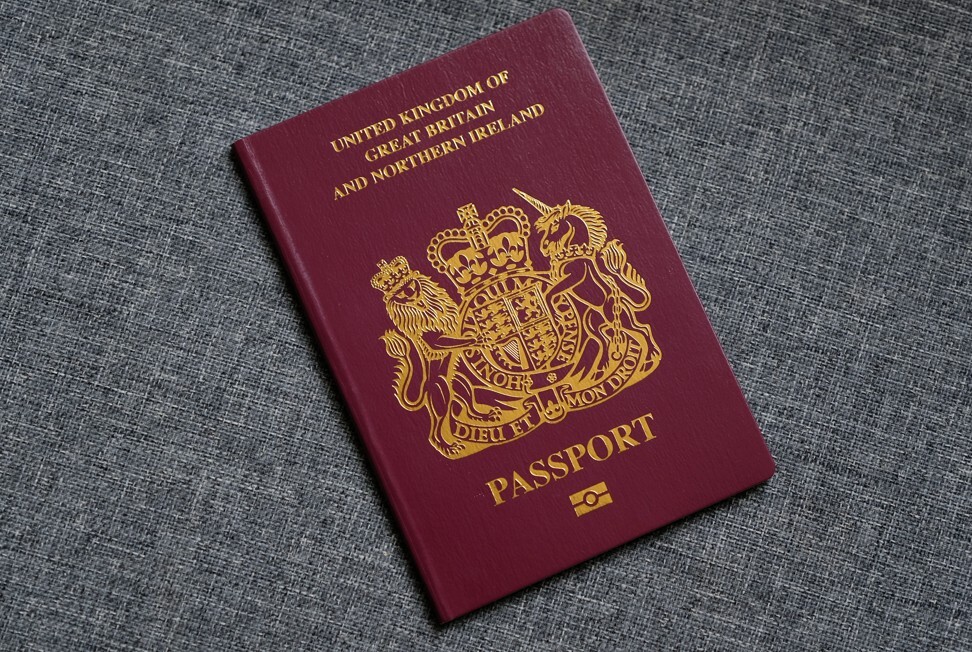
Hong Kong lashes out at Britain over use of city’s flag in meeting with activists, accuses London of breaching joint declaration with new BN(O) visa scheme
- City’s government suggests Britain’s use of the flag in a meeting with Nathan Law and others inappropriately implied he represents Hong Kong
- Government also takes issue with new visa scheme, asserting it violates a joint declaration provision, saying ex-British subjects would not enjoy right of abode
Hong Kong’s government has lashed out at British officials for displaying the city’s flag during a meeting with a group of activists in London, going on to accuse the former colonial power of breaching its obligations under the agreement by which the city was returned to China.
In a statement on Thursday, the local government suggested that displaying the flag during the meeting had inappropriately implied the activists – some of them long-time critics – represented Hong Kong.
“The [Special Administrative Region] government expresses strong disapproval at the deliberate display of Hong Kong’s regional flag during the meeting between Britain’s home secretary and anti-government activists from Hong Kong who have no official standing,” the city’s government said in a statement on Thursday.
“This is obviously another provocative behaviour following the British government’s latest six-monthly report on Hong Kong which is malicious and slanderous against Hong Kong.”

In her meeting with activists, where she was photographed with the city’s flag displayed alongside the Union flag, Patel pledged to stick up for Hongkongers.
“The United Kingdom will stand by the people of Hong Kong and keep our promise to protect and uphold their freedoms,” she said.

Lau Siu-kai, vice-president of the semi-official Chinese Association of Hong Kong and Macau Studies, said the use of the city’s flag in the meeting had been a “politically provocative gesture”, as it suggested Britain was treating its meeting with Law and other activists as it would an official exchange between two governments.
“The British government treated Law, an anti-government separatist, as an important political figure with the intent to meddle in Hong Kong’s affairs,” he said.
But political commentator Chung Kim-wah said the display of Hong Kong’s flag was more indicative of recent damage to Hong Kong’s reputation abroad.
“The meeting between British officials and Law shows that the Hong Kong government’s international standing has been questioned by the global community due to its unreasonable crackdowns on its opponents,” he said. “Judging from the reception of Law by the British government, he represented a significant voice of certain people in Hong Kong.”
At Wednesday’s meeting, Law also thanked Patel, whose department is responsible for immigration, for her work in opening up a new pathway to British citizenship for about 3 million people in Hong Kong.

03:14
UK unveils details of citizenship offer for Hongkongers with BN(O) passport holders
The new scheme, set to launch in less than two months, will allow Hongkongers with BN(O) – or British National (Overseas) – status, and their dependents, to apply for visas enabling them to live and work in Britain for up to five years, after which they can seek permanent residency.
Activists and some politicians have also called on the British government to expand the scheme to include Hongkongers without BN(O) status.
The scheme prompted the Hong Kong government on Thursday to accuse Britain of violating the joint declaration and playing politics under the guise of defending human rights.
Britain rebuked by Beijing, Hong Kong after comments on security law, judges
In memorandums agreed to by both Britain and China under the declaration, the British government said that its former dependent territorial citizens would retain an “appropriate status”, albeit “without conferring the right of abode in the United Kingdom”.
Alluding to the provision, Thursday’s statement said: “If the British government deliberately reneges on its promise under the joint declaration’s UK Memorandum and ignores the Central People’s Government’s strong opposition … this is a flagrant disregard for the historical facts and a breach of its international obligations.”

The government reiterated that after the resumption of sovereignty over Hong Kong in 1997, the city’s affairs became the internal affairs of China, and as such, were beyond the interference of other countries.
British Prime Minister Boris Johnson’s government announced the new BN(O) visa scheme soon after Beijing imposed the national security law on the city, which prompted an outcry from London over what it characterised as a “draconian” breach of the joint declaration.
UN: national security law has ‘chilling effect’ on Hong Kong freedoms
Applications for the new visa scheme are expected to open on January 31, and there is no cap on the number of Hongkongers with BN(O) status allowed to participate.
China has previously accused Britain of interfering in its internal affairs through its BN(O) scheme, and has threatened not to recognise the passports, which were issued to Hongkongers during the colonial period, but did not confer full British citizenship.
Lau, of the Chinese Association of Hong Kong and Macau Studies, agreed that the new BN(O) scheme was a move to interfere in China’s internal affairs, and predicted it would damage Hong Kong’s interests by stealing capital and talent from the city.
“This move has also hurt Sino-British relations. I envisage that Britain will become more aggressive in meddling in the affairs of Hong Kong,” he said.

